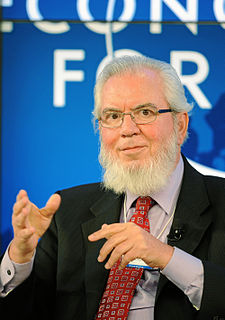A Quote by Ratan Tata
Business need to go beyond the interest of their companies to the communities they serve.
Related Quotes
Some people would argue the other side: that the business of business is business, and companies should only be focused on profits. But in today's world, I don't think corporations can only be focused on profits, because they are inextricably linked with the communities that they serve. I do not believe you can be a leader in your industry without being a leader in your community. It's a fundamental shift in how you think about business.
My primary early interest was in marketing and my aim was to improve its theories, methods and tools. Early on I pressed companies to adopt a consumer orientation and to be in the value creation business. I didn't pay much attention to the social responsibilities of business until later. Now I am pressing companies to address the triple bottom line: people, the planet, and profits. I found that companies were too much into short term profit maximization and they needed to invest more in sustainability thinking.
We Canadians need to go beyond what any previous government has done in terms of our diplomatic network, our support for companies to export, trade and invest beyond North America, and our contribution to the safety of the international system, through defence, development, international organizations, and so forth.
We urgently need to bring to our communities the limitless capacity to love, serve, and create for and with each other. We urgently need to bring the neighbor back into our hoods, not only in our inner cities but also in our suburbs, our gated communities, on Main Street and Wall Street, and on Ivy League campuses.


































